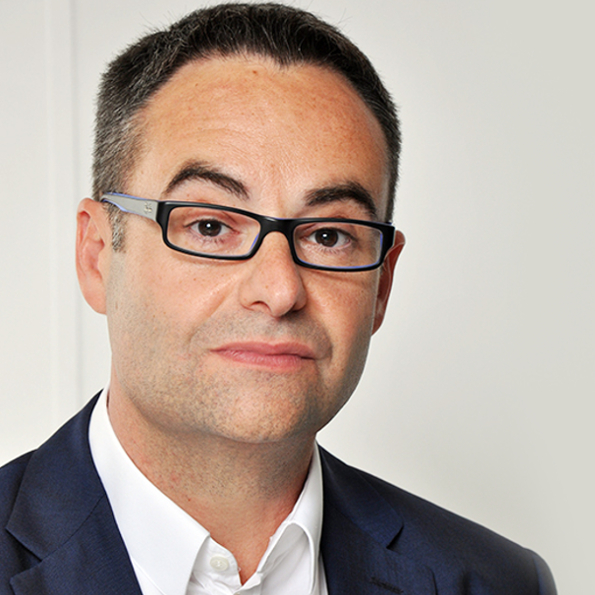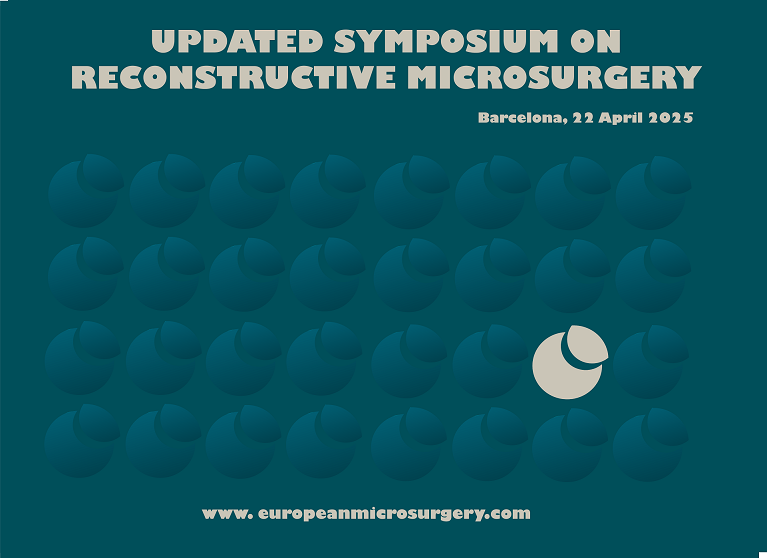About the International Master's Degree in Reconstructive Microsurgery
The International Master’s Degree in Reconstructive Microsurgery is a Lifelong Learning Master’s Degree officially recognised by the Universitat Autònoma of Barcelona (UAB), and it is addressed to plastic surgeons, surgical specialists without experience in microsurgery, and experienced microsurgeons who want to widen their range of competences and learn new skills.
Over the last ten years, the exponential growth in the use of microsurgical techniques, especially in plastic surgery, clearly indicates that a skilled microsurgical team is indispensable in all major hospitals.
This International Master’s Degree in Reconstructive Microsurgery offers comprehensive, specific training in fields such as breast surgery, head and neck reconstruction, limb salvage, genitourinary and supermicrosurgery.
The programme includes specific training modules that cover both theoretical and practical aspects. The acquisition of high level skills is guaranteed to all trainees.
The training programme will be individually tailored to the needs of each student. A high level of performance is expected, however, and quality instruction is guaranteed.
An international master’s degree in reconstructive microsurgery opens the door to a multitude of professional opportunities and avenues in medicine. This specialisation requires not only in-depth theoretical training, but also practical experience, which can be gained through training and internships in leading medical institutions. Each step in the process of obtaining such a degree contributes not only to professional growth, but also to broadening one’s horizons.
Nevertheless, the variety of interests each person has is great, and sometimes it is important to find ways to relax and have fun after long hours of study. In this context, online casinos become a great alternative for leisure activities. For example, among the many options, there are several popular platforms that deserve attention. On the site https://hotcasinoswiss.com/casinos/twint/, dedicated to the review of the best gambling sites with the Twint payment system, you can find up-to-date information and recommendations on the most interesting and reliable establishments.
Thus, the combination of professional development and quality recreation can be the key to a successful balance in life.

“MRM is a unique program tailored on the specifics of learning: the acquisition of knowledge, and the reframing of a practice. Students agree that it is an unforgettable life experience.”
Jaume Masià MD, PhD

“Students will have the opportunity to study the modules and the issues which they are interested in, depending on their wills and objectives in the future. ”
Sinikka Suominen, MD, PhD
Master’s Degree in Reconstructive Microsurgery in short:
The International Master’s Degree in Reconstructive Microsurgery is designed for plastic surgeons and other surgical specialists for whom microsurgery has become an essential component of their practice.
This degree is a 120 ECTS Lifelong Learning Master’s Degree (ECTS: European Credits Transfer System / 1ECTS = 25 hours in student’s work) delivered in a modular format.
A maximum of 35 and a minimum of 9 students will be accepted to the Master’s Degree program.
Research projects:
Master’s Degree trainees will be provided to study in the different research lines of the International Framework of the Lymphedema Treatment.
The students must carry out a clinical or experimental research project and literature reviews will be encouraged to be published in a peer reviewed journal.
Main objectives:
- Provide an environment where a qualified, motivated student can gain advanced training in reconstructive microsurgery.
- Master and apply suture techniques in microvascular surgery, lymphatic and anostomosis neurorrhaphy.
- To promote scientific and critical thinking.
- Preoperatively plan all types of microsurgical flaps: myocutaneous flaps, muscular flaps, bone flaps, axial-cutaneous flaps and perforator flaps.
- Perform microsurgical techniques in all major fields: breast reconstruction, head and neck surgery, limb salvage, lymphedema surgery, genitourinary reconstruction and supermicrosurgery.
- Analyze and determine the most suitable microsurgical technique for a particular case.
- Carry out postoperative follow up of microsurgical flaps: monitoring techniques.
- Approach and perform microsurgical flap salvage techniques.
- Avoid complications and sequelae of reconstructive procedures.
- Plan and perform limb replantation procedures.
- Learn and implement supermicrosurgery techniques.
- Analyze needs and indications for transplantation.
Our educational program delivers comprehensive professional development opportunities for every level of surgical experience. It puts world class training directly into the hands of those who strive for excellence.
Emphasis will be given to practical skills in microsurgical techniques, but will include diagnosis, therapeutic options, decision-making concerning techniques, and recognition and management of risks and complications.
The Master’s Degree in Reconstructive Microsurgery is divided onto three different parts:
- The face-to-face part of this Master’s degree is given in 3 Hands-on modules, each consisting of 3-day training courses held throughout the first year.
- 6 on-line modules that are held over the course of 2 academic years
- Tutoring sessions will be organized after each online module.
- The specific clinical immersion program is held in set hospitals. However, it can be undertaken at the participant’s own centre, and assessed by the faculty member directing the student educational itinerary.
- An online course to develop the methodological aspects of clinical research finished with the presentation of a Master Thesis / Final work. It is mandatory to carry out a clinical or experimental research project. This will facilitate participation in research projects at several hospitals even can do a doctoral thesis.
.
To be awarded this Master’s Degree, trainees must complete all the modules, pass the practical assessment, do the minimal period of clinical immersion and present a research project. Candidates who successfully complete the full course will be awarded a Master’s Degree recognized by the Universitat Autònoma de Barcelona.

On-line campus:
This e-learning area provides quality peer-reviewed information in a dynamic and interactive format
- Case review
- Forum discussion to receive feedback from the faculty
- Video surgery
- Evaluation tests
- Second opinion from experts
- Journal club
- Log book of clinical immersion
Minimal requirements to be awarded the Master’s Degree:
- Attendance of at least 100% in scheduled classes.
- A grade of at least 50% in multiple choice exam for each module.
- Achieve a minimum abilities in microvascular surgery training in a small animal model evaluated at the end of Module 2.
- Surgical efficiency and efficacy of at least 50% through log book and portfolio review during clinical immersion.
- A grade of at least 50% in the final exam involving a presentation of clinical cases.
The final mark for each Master Course is determined by a combination of the MCQS (40%), final assessment (40%) and research work and Master’s Final Thesis (20%).
Research skills: clinical or experimental research projects and literature reviews will be encouraged to be published in a peer reviewed journal.
Clinical immersion program will be assessed during the face-to-face clinical immersion in M10-M11-M12. Faculty will assess the therapeutic approach, the suitability of the chosen procedure and the quality of the oral presentation of clinical cases.
Optional Doctoral Thesis Degree (PhD):
Promoting research in microsurgery is also a major priority for the European School of Reconstructive Microsurgery. This objective has been translated into action through a focus on doctoral programs.
Masters’ students participants can become researchers and work in a framework on the development of doctoral programs for European higher education and research. They can join in different research projects and get the International Doctorate or ‘Doctor International’ mention.
To qualify for a International Doctorate, the candidate must fulfil certain criteria upon presentation of their thesis:
- The PhD thesis defence will be accorded if at least two professors from two higher education institutions of two European countries, other than the one where the thesis is defended, have given their review of the manuscript.
- At least one member of the jury should come from a higher education institution in another European country, other than the one, where the thesis is defended
- A part of the defence must take place in one of the official langua- ges, other than the one of the country, where the thesis is defended
- The thesis must partly have been prepared as a result of a research period of at least one trimester (or three months) spent in another European Country
When you begin the MRM program, you will immediately join a unique group of accomplished professionals. You and your fellow students will learn creatively and critically together. You will develop a community of support and lasting professional relationships with your colleagues and professors.
A master update meeting will be held every 5 years to discuss new techniques and to present new developments. Close interaction between qualified Master’s Degree students and faculty will be encouraged.
The aim of this update meeting is to create a wider clinical and scientific network that continues to engage in excellence in education and training in institutions throughout Europe.
The philosophy of these sessions is to establish a specialized working group with effective communication between former students and faculty.



